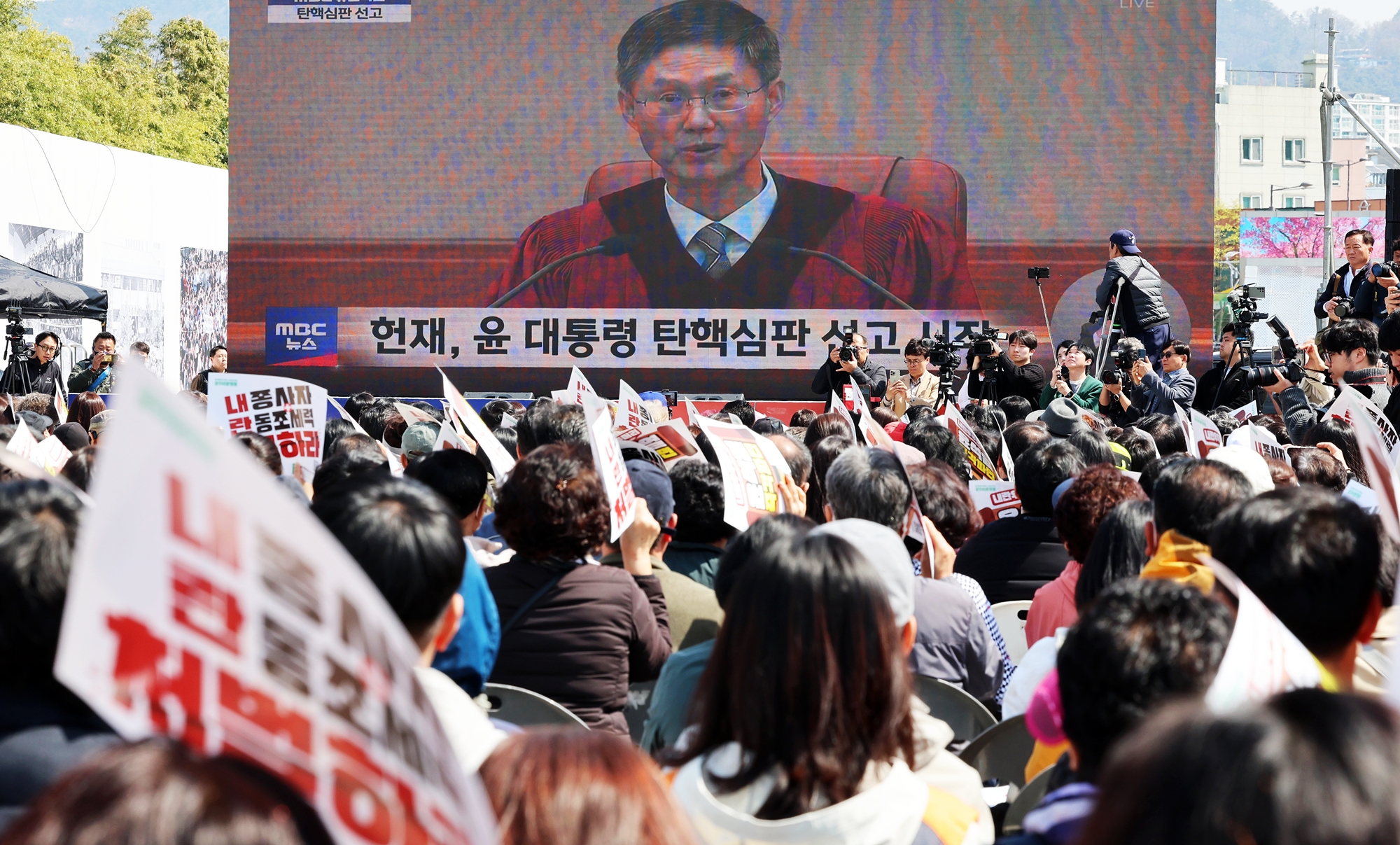
Crowds in the southwestern city of Gwangju on the morning of April 4 gather to watch the live broadcast of the Constitutional Court's ruling on the impeachment motion against President Yoon Suk Yeol at May 18 Democracy Square in the city's Dong-gu District. (Yonhap News)
By Xu Aiying
President Yoon Suk Yeol on April 4 was officially removed from office.
The Constitutional Court that day in a unanimous 8-0 decision upheld the National Assembly’s impeachment motion against him.
Acting Chief Justice Moon Hyung-bae at 11:22 a.m. read the verdict saying "The defendant, President Yoon Suk Yeol, is impeached." The decision took effect immediately after being read, officially stripping President Yoon of his position.
"The defendant (President Yoon) mobilized the military and police to undermine the authority of constitutional institutions such as the National Assembly and abandoned his duty to protect the Constitution by violating the basic human rights of the people," the verdict said.
"Such unconstitutional and illegal acts of the defendant betrayed the public trust and are major violations of law that are unacceptable from the perspective of protecting the Constitution."
"The defendant declared martial law in violation of the Constitution and laws, shocking the nation and causing confusion in all sectors of society, economy, politics and diplomacy by repeating a history of abusing national emergency powers," it added. "The benefit of protecting the Constitution by expelling the defendant is overwhelmingly greater than the national loss caused by removing the president from his position."
The verdict came 122 days after President Yoon declared martial law on Dec. 3 last year and 111 days after the parliamentary impeachment motion was filed on Dec. 14 the same year.
The election to appoint a successor must come within 60 days under the Constitution, and the acting president needs to declare it within 10 days after the impeachment verdict, or by April 14 in this case. So the next election will come between May 24 and June 3.
The election winner will take office immediately after the voting results are confirmed.
"We will maintain a firm security posture to ensure no gaps in national security and diplomacy," Acting President and Prime Minister Han Duck-soo said in a statement to the nation right after the verdict was announced. "Honoring the sovereign will of the nation, we will do our best to manage the presidential election under the Constitution and laws so that the next administration will be launched smoothly."
[email protected]
